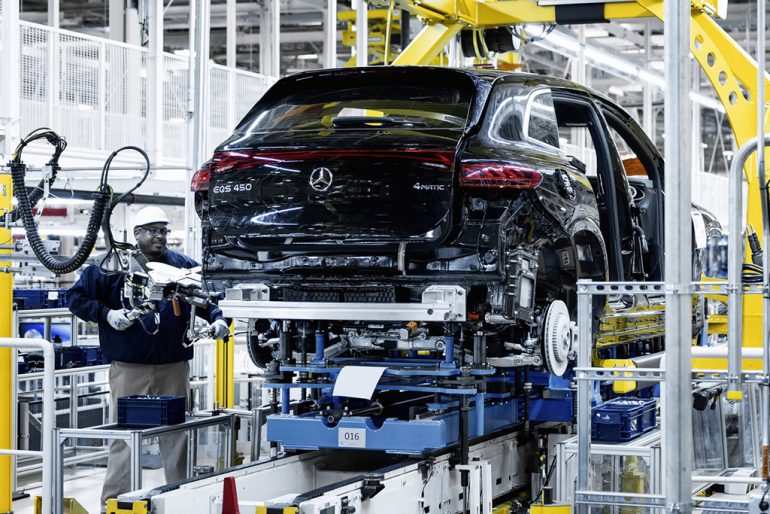
The workers at Mercedes-Benz’s Alabama plant are currently in the midst of a pivotal decision: whether to join the United Auto Workers (UAW) union. This vote carries significant weight, not just for the employees and the company, but for the broader landscape of labor relations in the historically anti-union American South. Following a recent UAW victory at a Volkswagen factory in Tennessee, a successful unionization effort at Mercedes would mark a significant milestone for the UAW as it endeavors to organize numerous automakers nationwide.
The campaign at Mercedes has been marked by tension, with the company actively urging workers to vote against unionization and employing anti-union firms to dissuade union support. However, Mercedes denies any hindrance of union organizing efforts and emphasizes its commitment to ensuring that every worker has the opportunity to vote by secret ballot.
For UAW President Shawn Fain, this endeavor has been part of a strategic effort to expand union representation beyond traditional strongholds. The successful negotiation of labor contracts in Detroit, including a landmark strike against major automakers, served as a foundational point in demonstrating the benefits of union membership, particularly for Southern workers.
Despite initial challenges in garnering support, pro-union sentiment among Mercedes workers has grown significantly. However, the plant’s location in the staunchly anti-union South presents a formidable obstacle. Mercedes has mounted a vigorous anti-union campaign, reminiscent of past efforts by Southern companies to resist unionization.
The outcome of this vote holds implications not only for the workers and the UAW but also for the broader dynamics of labor relations in the South. With state governments and company leadership exerting pressure against unionization, the decision facing Mercedes workers carries weighty consequences for the future of labor representation in the region.
Ultimately, the vote reflects a complex interplay of factors, including worker concerns, company responses, and broader socio-political dynamics. As workers weigh their options, the decision will shape not only their immediate working conditions but also the trajectory of labor relations in the American South.

Mike Floyd is a finance executive by trade and a car enthusiast at heart. As a CFO with a keen eye for detail and strategy, Mike brings his analytical mindset to the automotive world, uncovering fresh insights and unique perspectives that go beyond the surface. His passion for cars—especially his favorite, the Porsche 911, fuels his contributions to Automotive Addicts, where he blends a love for performance and design with his professional precision. Whether he’s breaking down industry trends or spotlighting emerging innovations, Mike helps keep the site both sharp and forward-thinking.